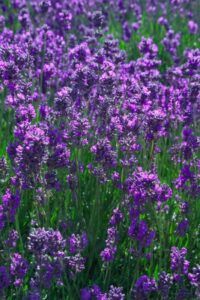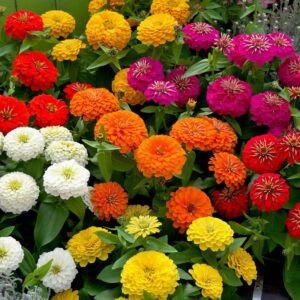Companion planting
Gardening can be filled with all sorts of complications. It is always subject to the whims of weather, insects, or fungal infections. Companion planting can help avoid some of these issues. Ensuring your yield from your backyard garden is optimal, consider some of these ideas.
Here are some ideas which can mitigate some of the vagaries of food gardening.
The best way to find some success is to plant smaller crops in bigger varieties. Avoid planting the same crop season after season in the same place.
Some plants thrive when planted close to each other, and some do not.
How Companion Planting Works
Nutrients
Plants take up nutrients from the soil and also return minerals to the growing medium. These differ from plant to plant. It is important to look for a balance. This is why crop rotation is essential for good results.
Legumes such as beans and peas return more nutrients than they take. These plants have a symbiotic relationship with nitrogen-fixing microbes. These microbes absorb the sugars produced by the roots in order to capture nitrogen and convert it into a form that is available for plants.
Scents
Only a few insects are true enemies of gardeners. Some plants attract insects and some repel them. Plants that have strong scents such as mint, basil, marigolds and garlic can keep pests at bay.
Shelter.
Gardeners always welcome beneficial insects, and it is a good idea to provide for these friends. Basil, borage, thyme and other herbs attract beneficial insects. Ladybugs like to snack on aphids. They are often found on roses where aphids can be a problem.
Spiders prey on many of a gardener’s enemies. Plants that have a lot of pollen will provide shelter and food for helpful insects.
Traps
Pests can often be lured away from your crops when you plant a sacrificial plant nearby. Nasturtiums often can work to attract nasties away from your food crops.
Planning
You can plant tall sun-loving plants alongside shade-tolerant species. For example, maize can shelter low-growing plants like squash. You can also allow climbers such as beans to grow up the maize plant as it grows taller.
Flowers in your vegetable garden
- Calendula can attract insects and can also act as a trap crop.
- Chrysanthemums, Pyrethrum, an all-round pesticide is extracted from chrysanthemums
- Nasturtiums. These are a good trap crop but the flowers are pretty, edible, and are an interesting addition to salads. They deter insects so plant them near beans, cucumbers and cabbages.
- Geraniums. The strong-scented leaves can repel insects.
- Sunflowers grow well alongside beans and squash, they also work well as a windbreak
- Lavender plants attract bees and make a great addition to vanilla biscuits

- Marigolds are well known for their insect-repelling properties they do well with tomatoes, potatoes, and roses but can retard the growth of beans.
- Roses are friends with alliums, which help prevent black spot mildew and aphids. Parsley discourages rose beetles. Never plant a new rose where an old rose died. The soil may contain pathogens
- Zinnias are useful to most plants as they attract butterflies and wasps
- .

The A-Z of companion planting.
Good friends and bad
- Artemessia produces a strong antiseptic scent that repels most insects. It can also deter small animals like Rabbits and moles.
- Asparagus: Friends: Parsley and tomatoes. Asparagus has no known enemies
- Basil grows well with tomatoes but does not thrive with Rue.

- Planting beans with Tomatoes and maize will be of mutual benefit. Add marigolds and rosemary but beans do not thrive in the company of onions or garlic.
- Interplant beetroot with cabbages, onions, cucumbers, lettuce, and parsley. Mint and catnip will ward off insects. Beetroot, however, does not grow well near runner beans.
- .

- Borage is a friend of strawberries. This plant is a great compost activator and dynamic accumulator. There are no plants known that do not like to grow near borage. Borage repels Tomato horn worms and cabbage worms, and also attracts beneficial bees and wasps. Borage flowers are edible
- The flavour of broccoli is improved with beans, potatoes, and celery. Pest repellents to try are dill, chamomile, peppermint, and sage. As broccoli requires calcium from the soil, avoid tomatoes and lettuce. Plant with low calcium feeders like nasturtiums and marigolds.

- Grow Cabbage with onions and potatoes. Nasturtiums, pennyroyal thyme, and sage help to repel pests. Planting clover with cabbage makes it difficult for pests to locate it. It is not advisable to plant strawberries with cabbage.
- Carrots grow well with radishes. Members of the Allium family (onions, leeks, etc.) can repel pests. However, avoid dill and aniseed
- Catnip – This plant repels just about everything, including flea beetles, aphids, Japanese beetles, squash bugs, ants, and weevils..
- Chives grow well with carrots and tomatoes. They are friends of roses too. But chives do not thrive with peas. They repel Japanese beetles and carrot rust flies. It has also been said that Chives will help prevent scab when planted among apple trees
- Chrysanthemums. This is an all-natural pesticide that can help control things like roaches, ticks, silverfish, lice, fleas, bedbugs, and to control ants in certain parts of the garden. In the garden white flowering chrysanthemums are said to drive away Japanese beetles, and Painted Daisy kills root nematodes
- Cucumbers grow well with beans, cabbages, maize, peas, and radishes. Alliums can deter pests. Avoid growing cucumbers with potatoes and strong-smelling herbs.

- Dill shelters beneficial insects, it repels spider mites and aphids. Sow Dill with onions, cucumbers, and lettuce. Dill is not a friend of tomatoes or carrots. During the cool season, it can also be planted with Lettuce. Dill attracts Hoverflies and predatory wasps, and its foliage is used as food by swallowtail butterfly caterpillars. Tomato horn worms are also attracted to Dill. Plant it away from these to draw the destructive insects to it. Dill repels aphids and spider mites. Sprinkling Dill leaves on squash plants will also repel squash bugs,
- Fennel– Repels aphids, slugs, and snails.
- Garlic is a good insect repellent for roses. Plant between tomatoes, brinjals and cabbages. But avoid beans and peas.. It also deters coddling moths, Japanese beetles, root maggots, snails, and carrot root fly. They also discourage rodents.
- Hyssop attracts bees
- Lettuces thrive with strawberries, carrots, cucumbers and radishes. Plant them below taller vegetables for light shade. Allow some of the crop to set seed. The flowers attract beneficial insects and the crop will grow new seedlings. Lettuces thrive with strawberries, carrots, cucumbers, and radishes. Plant them below taller vegetables for light shade. Allow some of the crop to set seed. The flowers attract beneficial insects and the crop will grow new seedlings.
- Mint grows well with cabbages and tomatoes. It is a good insect-repelling plant.
- Nasturtiums can be planted with tomatoes and Cucumbers to fight off woolly aphids, white flies, Squash bugs, and Cucumber beetles. The flowers are a trap for aphids
- Onions are friends with cabbages, beetroot, strawberries, potatoes, lettuce, and also roses. They do not grow well next to beans and sage, even though these go well on a dinner plate.

- Parsley grows well with asparagus, tomatoes, and carrots. It is a good plant to add around rose bushes.

- Peas like to grow alongside maize beans, potatoes, radishes, tomatoes, cucumbers, and turnips. These all benefit from nitrogen. Tomatoes, brinjals, spinach, and lettuce use the shade from climbing beans. Peas are not friends of alliums (onions leeks, etc.) and peas growing alongside sage can improve flavour.
- Peppers grow well with carrots, onions, oregano and basil. They do not thrive with fennel, beans or Kohlrabi.
- Potatoes are friends with horseradish, maize, cabbages, tansy marigolds, and nasturtiums. They do not do well with pumpkins, tomatoes, cucumbers and raspberries.
- Rosemary benefits from cabbages, broccoli, carrots, and onions, but do not plant with potatoes.
- Sage is a good companion to cabbages, carrots tomatoes, and strawberries but can retard the growth of cucumber. Also, avoid growing alongside onions and rue.
- Squash grows well with beans, radishes, and nasturtiums. Use mint to keep pests away.
Potatoes may not do well in the company of squash. - Thyme has no known enemies but it benefits brinjals, cabbages, tomatoes, and potatoes.
Tomatoes are a friend of asparagus, broccoli, cauliflower, cabbages, carrots, onions, basil, and parsley. They do not do well with brinjals, fennel, and potatoes. 
- Yarrow is a friend of most plants as it encourages disease resistance and attracts predatory insects. It also improves soil fertility.

